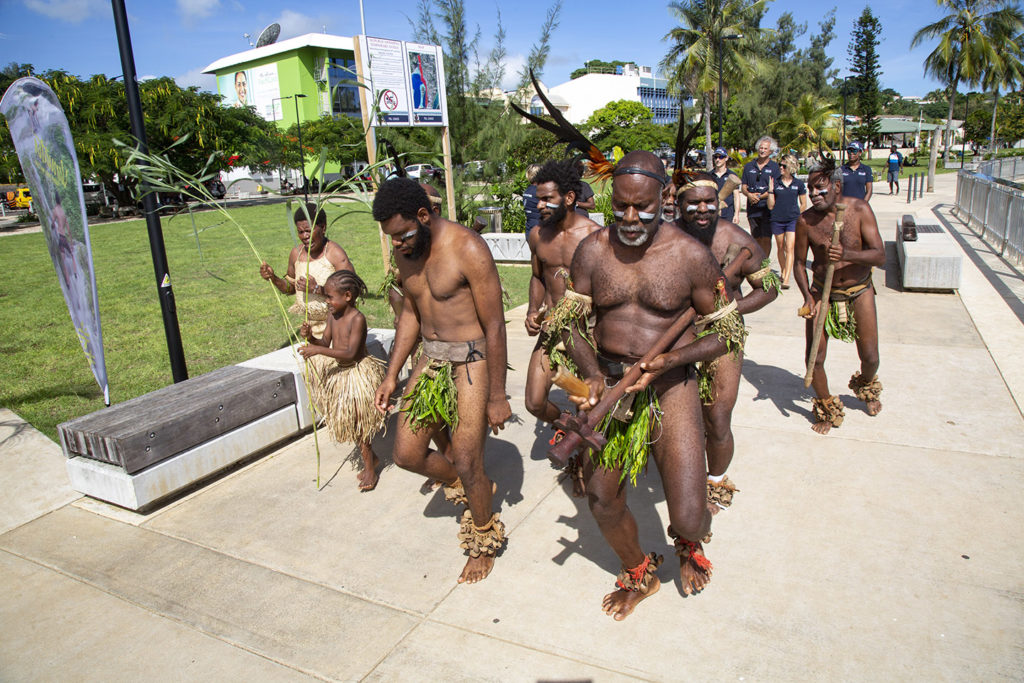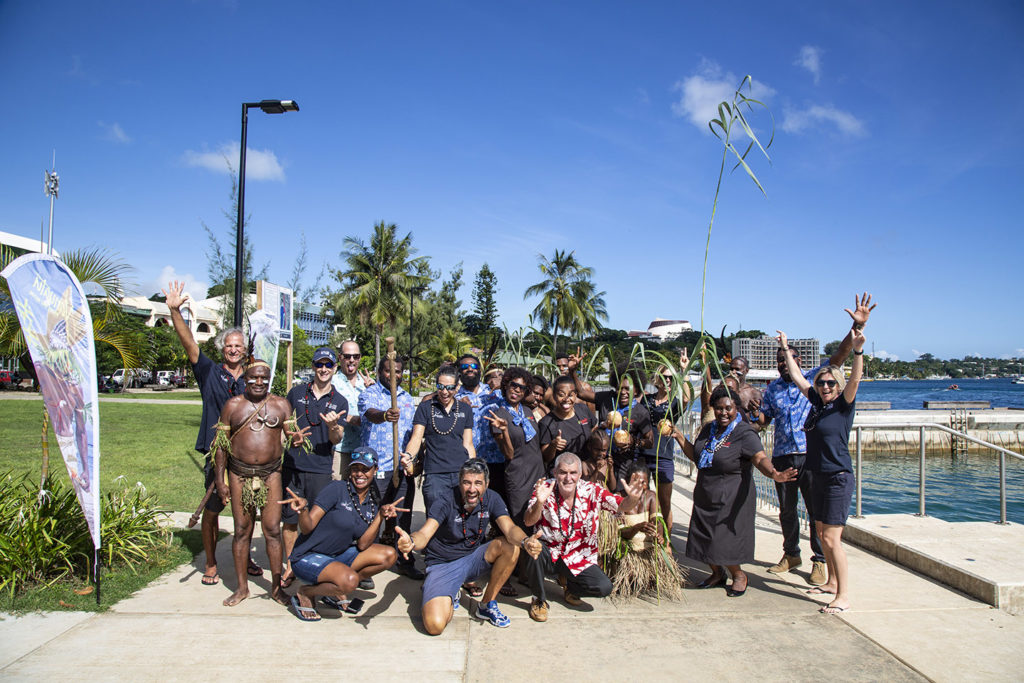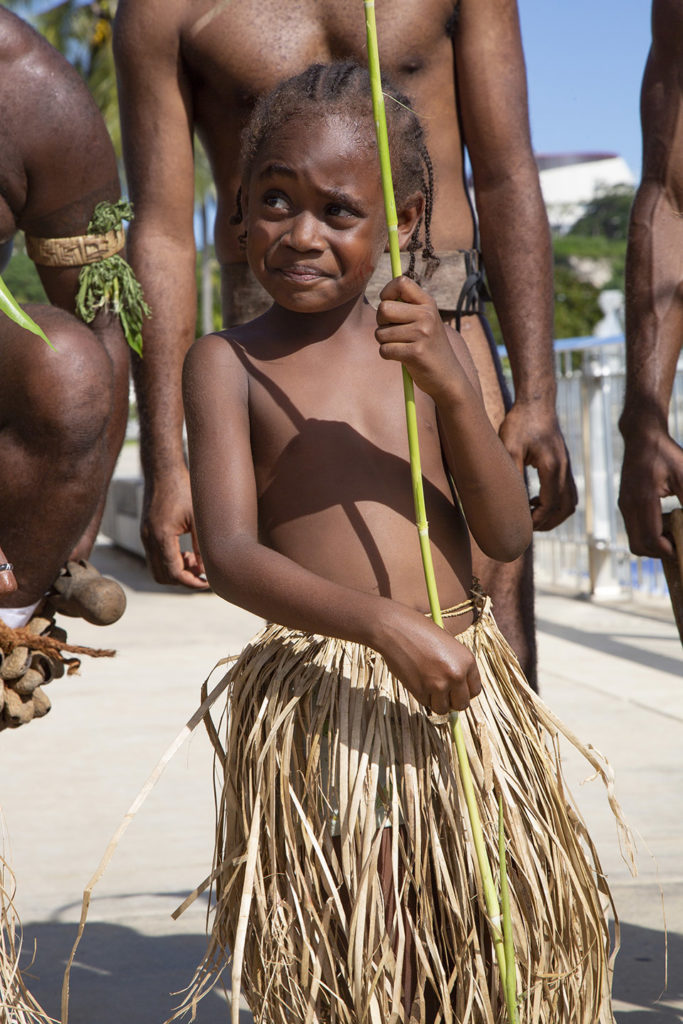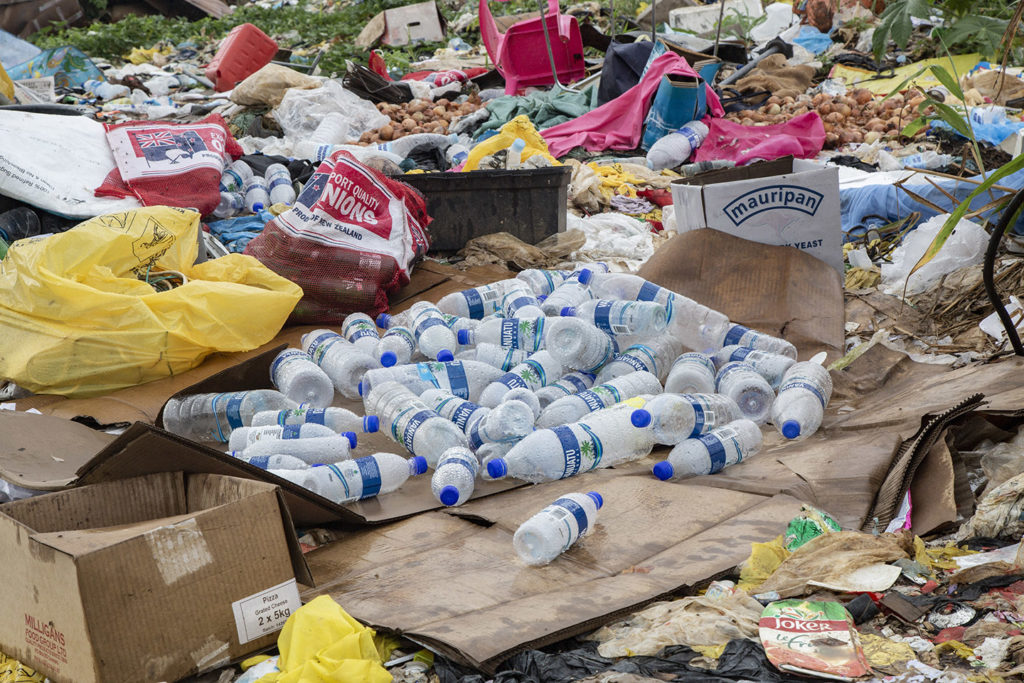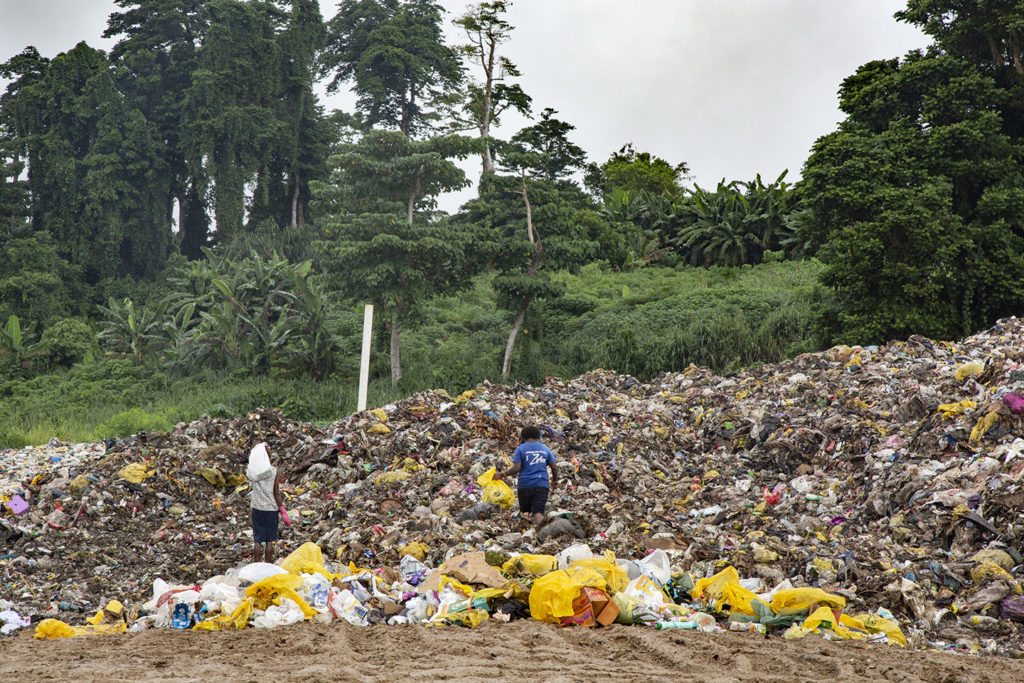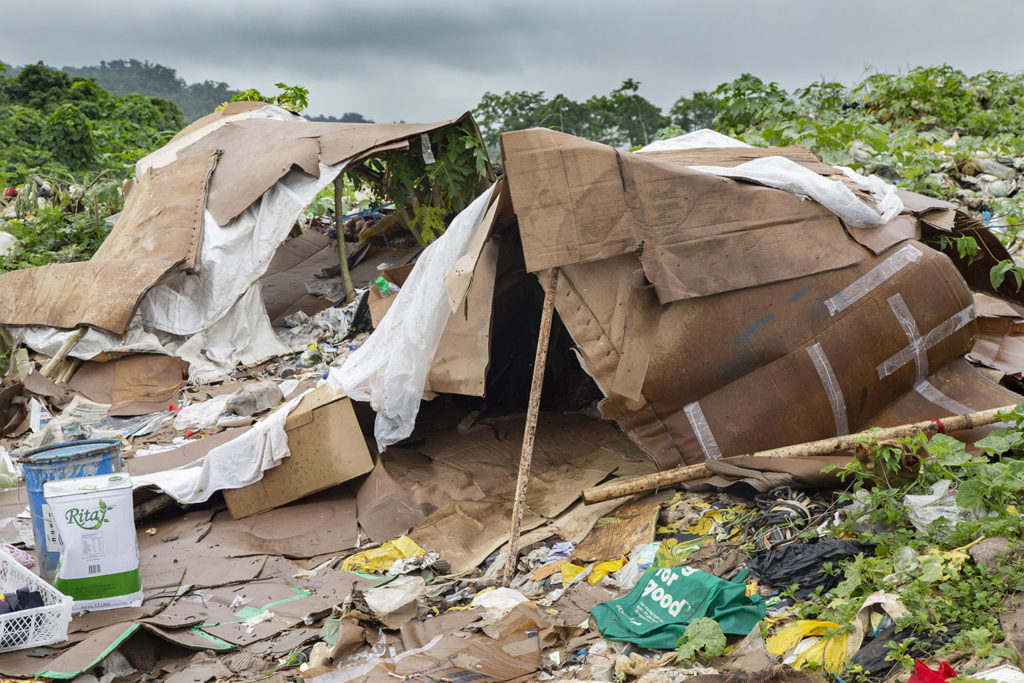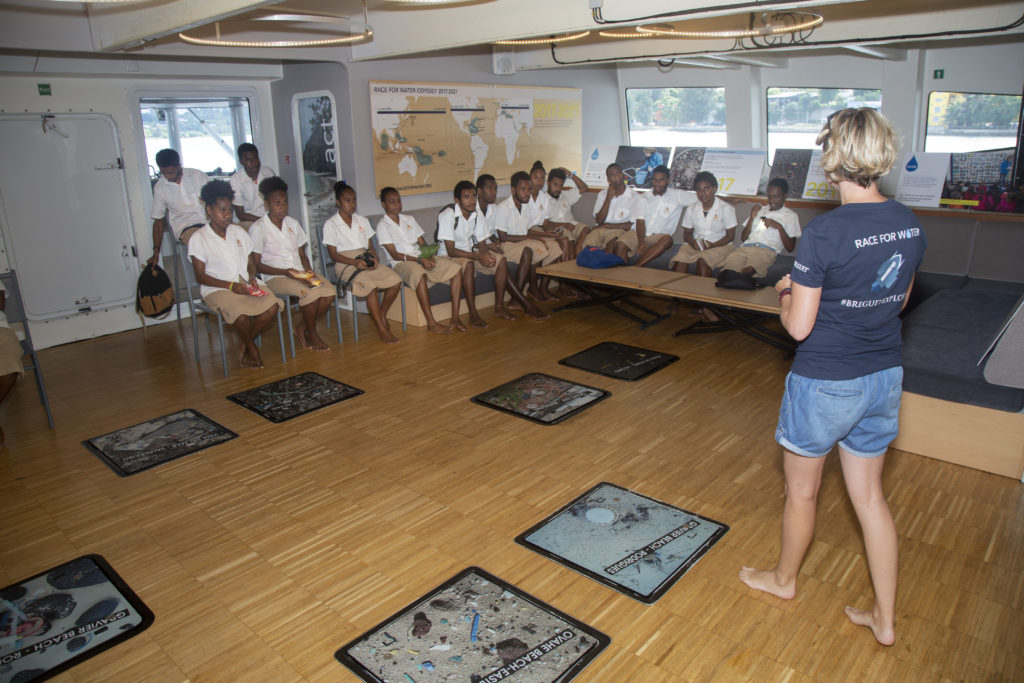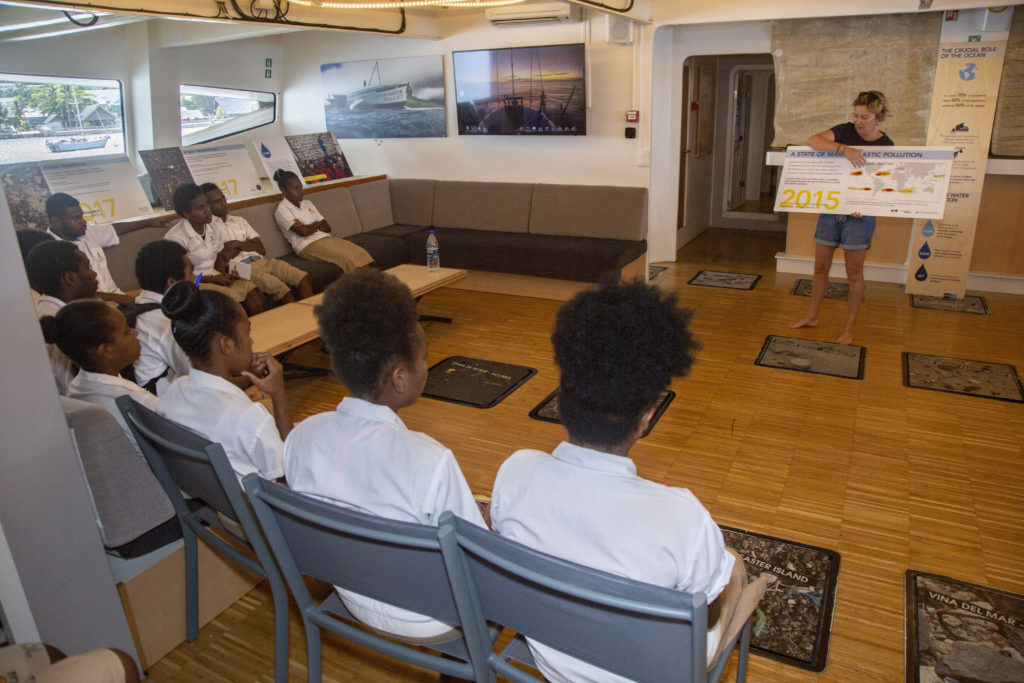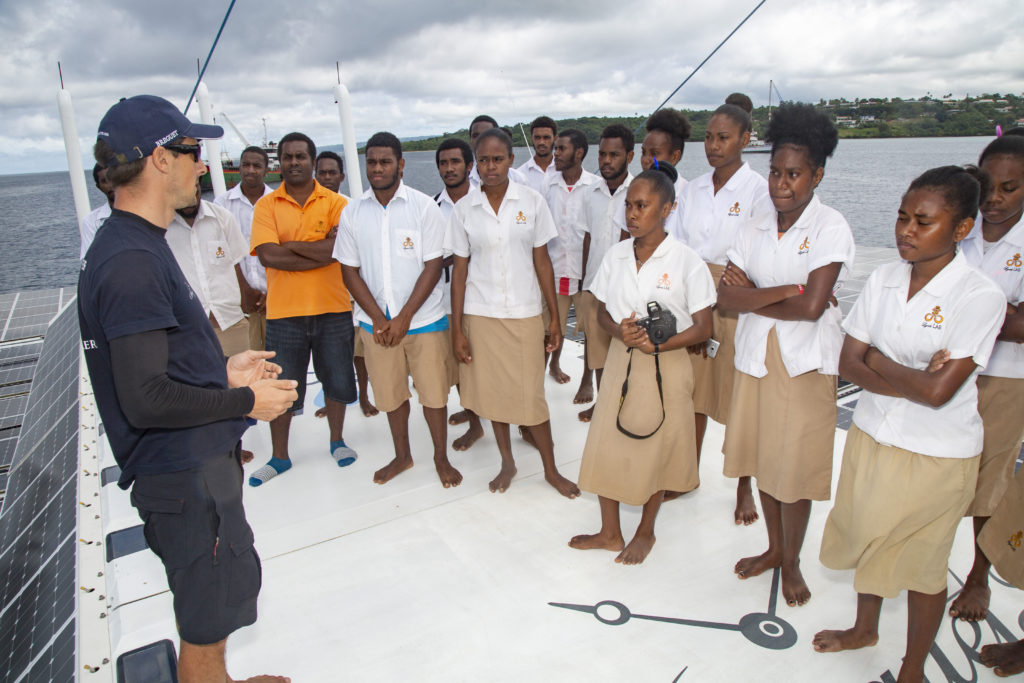Vanuatu, a committed archipelago
On the map they form a Y, 80 small islands and islets and a dozen large islands. The Vanuatu archipelago is vast (900km long) but it is the smallest Melanesian state. Here volcanoes are everywhere, some have been dormant for a long time while others are very active; volcanic activity is a constant, and earthquakes are common. The country is in a cyclonic area, gaping wounds visible on some buildings still bear witness to the 2015 cyclone.
The relative “youth” of the islands means that the fauna and flora not as rich as in neighbouring New Caledonia, nevertheless their beauty delights the eye. Vast forests cover the territories and the banyan tree is one of the remarkable species that can be found there. The rugged topography of the coastline hosts mangroves in some places; veritable breeding grounds which are a vital and fragile ecosystem. In the bays sheltered from the wind, one can observe dugongs. Now an endangered species, they were present in the first lagoon of Port Vila but human activity (tourism and pollution) drove out the rare individuals who chose to breed there. Now, this peaceful mammal can be observed in remote corners, far from humans activity…
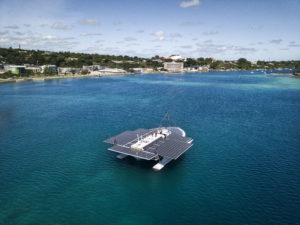
Race for Water set its sights from April 3rd to 14th, 2019 on Efate (the fourth largest island) and more specifically on Port Vila, one of the two cities of Vanuatu. A whole group of dancers dressed in traditional clothes was waiting for us on the dock to welcome us. Fresh coconuts and necklaces made from seeds and shells were offered to us. An exchange is customary, and in turn we offered them our modest presents. To our surprise not two but three languages coexist: French, English and Bichelamar, the latter being the common language.
A small country with great ambitions
Vanuatu has become in spite of itself the symbol of small countries who have had a direct impactby from climate change. Like its neighbours, it faces many environmental and economic challenges. Citizens and associations such as “No plastic bags Plis” have pushed the government to take drastic measures in environmental matters. On the 1st of February 2018, the Prime Minister and the Council of Ministers signed a ban on certain non-biodegradable plastics and throwing rubbish on the street is punishable by law. The government has given companies and restaurants six months to replace plastic bags, straws and polystyrene food packaging. Just a few months after the implementation of the “ban”, the waters of Port Vila are now free from the plague of plastic.
One of the local companies producing plastic (bottled water) has decided to set up a collection; bottles are bought from the collectors and stored in their warehouse. If they cannot be transformed on the spot or exported, they no longer end up in the ocean.
However, Rontexstar Mogeror, a member of the government, warns us: “This is not the end of the story. We now need to put in place an efficient collection system that would ultimately allow waste to be recovered and transformed into energy. The population is favourable and willing to make an effort, it is time to act because we are not yet big consumers. Meanwhile, all waste, with no sorting, goes to the dump”.
We went to see it. Located a few kilometres from the city centre and served by a track, it spreads over 48 ha. In 2006, the uncontrolled site was made official and a Japanese company invested in this dump. Currently only 15% of the total area is exploited and between 50 and 60 collectors live there. We find the yellow bags (household waste) sold by the town hall to finance the collection of rubbish, boxes of supermarket packaging, household appliances, tires and hospital waste, the incinerator has been out of operation for several months… Leachate (liquid that comes from landfill waste) is not recovered, waste flies away with the wind and no sorting is done. On the positive side, the view of the lagoon is beautiful.
The country aims by 2030 to produce 100% renewable electricity, biomass and plastic could weigh in the balance alongside wind turbines, solar panels and coconut oil. They have the means, but, alas, as often is the case, lack the funds. We met with “waste to energy” project leaders, the ideas and skills are in place and we hope that their projects will succeed.
Education: a sound investment
Our spokesperson in the Ministry of Education is enthusiastic: “An awareness-raising programme has been set up in schools, our agents also meet the chieftaincies on the other islands to ensure all territories are included. The people are willing, but the environmental impact still needs to be measured”.
The initiative is supported by associations and NGOs that actively participate in educating the younger generations. Beach and river clean-ups are organised during which the community learns to separate waste, consume differently and is made aware of the environmental impact of pollution.
Events such as World Environment Week, World Day Clean UP or World Water Day are an opportunity to educate a broad section of the population. On Efate Island alone, 8 beach clean-ups are organised every year.
The Okéanos Foundation promotes inter-island transport via traditional sailing canoes. It seeks to encourage trade between the islands while reducing the carbon footprint of maritime transport. Thanks to this foundation, many people are trained in navigation and can so become the actors of an environmentally sustainable economy. In Samoa, we met one of the 7 big sisters, as if a universal bond united us, this time again, our two crewmembers experienced a very exciting moment!
The stopover has come to an end, we are ready to head North. There is hope tinged with despondency. As everywhere, the urgency is palpable. These extraordinarily kind people are inspiring because of their simplicity: “It takes little to be happy” could be their motto. Far from the consumer driven society, they are becoming aware of the damage it causes; at the same time, cruise liners dock and leave us speechless in the face of the uninterrupted stream of passengers eager for exoticism.
Back on video on the 16th stopover of the Race for Water Odyssey
Thanks to our local partners

